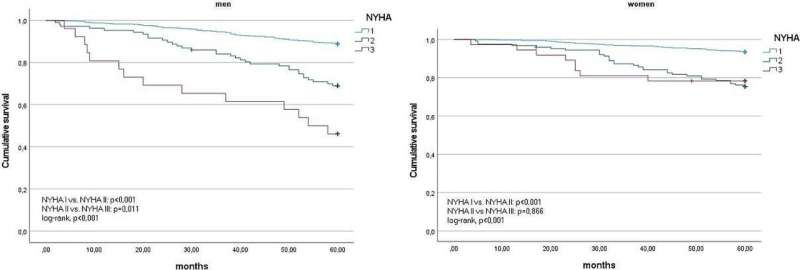This article has been reviewed according to Science X's editorial process and policies. Editors have highlighted the following attributes while ensuring the content's credibility:
fact-checked
trusted source
proofread
Heart failure in type 2 diabetes: Current diagnostic methods unreliable in women

A MedUni Vienna study has investigated gender-specific differences in the diagnosis of systolic heart failure in patients with type 2 diabetes. The results, recently published in the journal Cardiovascular Diabetology, show that the current methods are less reliable in women than in men.
In view of the prevalence of heart disease, particularly in women with type 2 diabetes, it is recommended that gender aspects be taken into account in existing guidelines in order to ensure the best possible care for patients.
As part of the study, the scientific team led by gender medicine specialist Alexandra Kautzky-Willer from the Division of Endocrinology and Metabolism (Department of Medicine III), in collaboration with Martin Hülsmann and other colleagues from the Division of Cardiology (Department of Medicine II), analyzed data from 2,083 patients with type 2 diabetes (T2D) collected over a period of five years. Common methods and parameters for the diagnosis of systolic heart failure in T2D were analyzed, with a particular focus on gender-specific differences.
T2D patients are up to four times more likely to have heart failure than people without T2D, with women more than twice as likely to be affected as men. Despite the pathophysiological differences between men and women, which lead to different predispositions and courses of the disease, there are currently no gender-specific recommendations for the diagnosis of heart failure in patients with T2D.
If symptoms are noted, the current guidelines recommend further investigations for both sexes, such as determining the marker NT-proBNP in the blood and performing an echocardiogram (cardiac ultrasound). According to the NYHA classification, a categorization is made according to the severity of the symptoms, from which treatment strategies are derived.
Early diagnosis is crucial for prognosis
As the current study shows, this standardized approach does not meet the specific needs of female and male T2D patients. While higher NYHA grades (reduced exercise capacity) are associated with higher NT-proBNP values, more frequent heart failure diagnoses and a higher risk of death in men, this correlation was not found in women.
In contrast, the significance of NT-proBNP for heart failure was significantly higher in both sexes, but especially in women, than the clinical symptoms. Apparently, women often have no symptoms for a long time or do not report them, even though they already suffer from manifest heart failure.
"Our results suggest that reduced performance may not be suitable for screening heart failure in women with T2D," concludes first author Sarah Hofer-Zeni (Clinical Department of Endocrinology and Metabolism).
"NT-proBNP values, on the other hand, can be very sensitive and early markers of heart failure, especially in women. Diagnosing the heart disease as early as possible and adapting the treatment with new, very effective drugs is essential for the prognosis of patients with T2D," adds study leader Alexandra Kautzky-Willer.
According to the research team, the results of the analyses also support the need for heart failure screening in women with T2D that is based less on symptoms and more on biomarkers, and for gender-specific aspects to be taken into account in the guidelines.
More information: Sarah Hofer-Zeni et al, Sex differences in the diagnostic algorithm of screening for heart failure by symptoms and NT-proBNP in patients with type 2 diabetes, Cardiovascular Diabetology (2024). DOI: 10.1186/s12933-024-02360-6




















